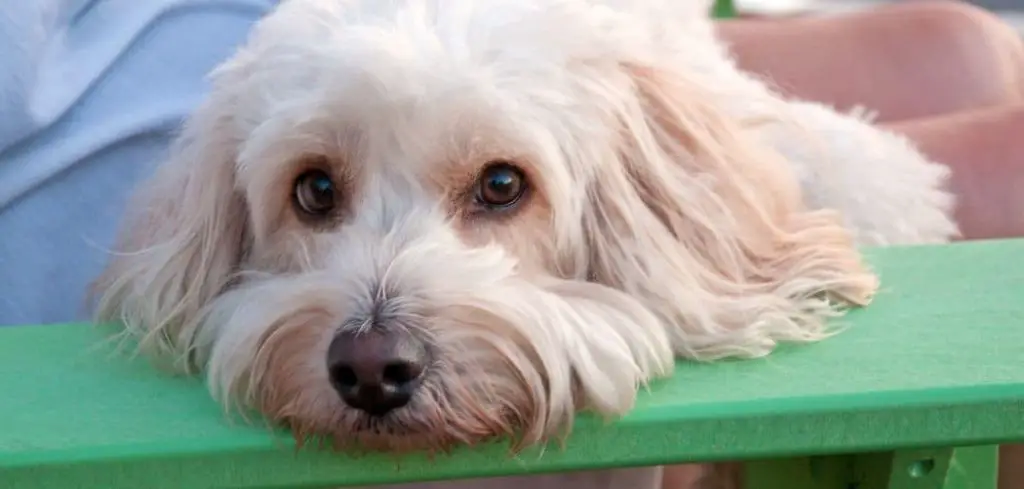When a puppy develops loose stool with mucus, it can be both concerning and confusing for dog owners.
Puppies have sensitive digestive systems, and while some cases may resolve with simple care, others can signal more serious conditions that need prompt veterinary attention.
We outline the common causes of a puppy having loose stool with mucus, what you can do at home, and when to seek veterinary help.
Puppy Loose Stool with Mucus — Why It Happens
Loose stool with mucus in puppies typically happens when the digestive tract is stressed or inflamed. This can occur due to dietary indiscretion, intestinal parasites, infections, food sensitivities, or even stress-related changes in the gut.
The presence of mucus itself is the body’s way of protecting and lubricating the intestines. However, when it shows up alongside diarrhea, it indicates that something is disrupting normal digestion.
Puppies are especially vulnerable since their immune systems are still developing and they are more prone to infections and parasites.

Puppy Loose Stool with Mucus: Common Causes
Dietary Indiscretion
Puppies love to explore with their mouths, which means they often eat things they shouldn’t. Garbage, table scraps, or sudden changes in food can easily upset their delicate digestive systems.
When the intestines are irritated, mucus is often produced to help protect the lining, leading to stool that looks slimy or coated.
Owners may also notice vomiting or general stomach upset along with the loose stool.
Read more: Dog Watery Stool with Blood (When it’s an emergency)
Intestinal Parasites
Parasites such as roundworms, hookworms, whipworms, and giardia are very common in puppies.
These organisms irritate the lining of the intestines, often resulting in loose, sometimes foul-smelling stool mixed with mucus.
In some cases, blood may also be present. Puppies with parasites may lose weight, have a bloated belly, or appear lethargic.
Because parasites can cause significant harm quickly, a stool test and deworming are important if mucus appears in your puppy’s stool.
Bacterial or Viral Infections
Infections like parvovirus, coronavirus, or bacterial overgrowth can all cause inflammation in a puppy’s intestines.
This leads to loose stool with mucus, often accompanied by vomiting, fever, and severe lethargy.
Parvovirus in particular is life-threatening and requires immediate veterinary care. Even less severe infections can dehydrate a puppy quickly, making prompt treatment essential.
Food Sensitivities or Allergies
Some puppies develop food sensitivities or allergies that cause chronic inflammation in their digestive systems.
When the gut is irritated, the body produces mucus to try to protect it, which then appears in the stool.
Signs may include recurrent loose stool, itching, skin irritation, or poor weight gain. Identifying and adjusting the diet can make a big difference for these puppies, but diagnosis should always be guided by a veterinarian.
Stress or Environmental Changes
Stress has a surprisingly big impact on a puppy’s digestion. Moving to a new home, boarding, vet visits, or even loud noises can trigger stress-induced colitis.
This condition causes the intestines to become inflamed, leading to loose stool with mucus. Puppies may also have accidents in the house or show other stress-related behaviors when this occurs.
While stress diarrhea sometimes resolves on its own, it should still be monitored closely.
Inflammatory Conditions
Though less common in very young puppies, inflammatory bowel disease (IBD) and other chronic gastrointestinal conditions can also cause mucus in the stool.
These disorders occur when the immune system mistakenly attacks the gut lining, leading to ongoing inflammation, poor digestion, and loose stools.
Puppies with chronic cases often need long-term veterinary management to prevent worsening symptoms.
What to Do If Your Puppy Has Loose Stool with Mucus
If your puppy has loose stool with mucus but seems otherwise bright and active, you can take some steps at home while monitoring closely. Withhold food for 8–12 hours (but not water) to give the intestines a chance to rest.
Afterward, feed a bland diet of boiled chicken and plain rice in small, frequent meals. Be sure your puppy stays well hydrated, since diarrhea can lead to rapid dehydration.
If you suspect dietary indiscretion, remove access to garbage, table scraps, or any non-food items. For puppies that may have parasites, collecting a fresh stool sample for the vet will speed up diagnosis and treatment.
Adding a probiotic designed for dogs can sometimes help rebalance gut bacteria, but this should be done with veterinary guidance.
Most importantly, monitor your puppy’s energy, appetite, and hydration closely. Puppies can decline quickly, so even mild cases of loose stool with mucus require vigilance.
When to Call or Visit Your Vet
You should seek veterinary care immediately if your puppy has loose stool with mucus accompanied by blood, vomiting, or lethargy. Puppies are at high risk of dehydration and severe illness, especially if the underlying cause is parvovirus or another serious infection.
Contact your vet if the loose stool lasts more than 24 hours, even without other symptoms. Persistent diarrhea can lead to weight loss, dehydration, and weakness.
If your puppy is not eating, has a bloated belly, or is straining painfully to pass stool, these are also red flags that warrant an urgent check.
Never wait to see if symptoms resolve if your puppy is very young, very small, or has not completed their vaccinations, as they are especially vulnerable to life-threatening conditions.
Read more: Puppy Loose Stool with Blood (What you should know)
Key Takeaway
Loose stool with mucus in puppies is a warning sign that their digestive system is under stress.
While mild cases may improve with rest and a bland diet, many causes—such as parasites or infections—require veterinary treatment. Because puppies can deteriorate quickly, timely monitoring and intervention are crucial.
If your puppy develops loose stool with mucus, stay calm, provide supportive care, and don’t hesitate to call your vet if symptoms persist or worsen.
With attentive care, most puppies recover quickly and return to their playful, happy selves.
